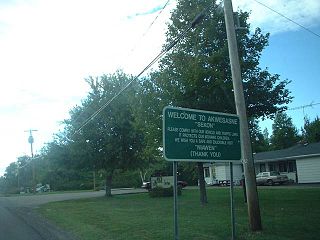Related Research Articles

The National Film Board of Canada is Canada's public film and digital media producer and distributor. An agency of the Government of Canada, the NFB produces and distributes documentary films, animation, web documentaries, and alternative dramas. In total, the NFB has produced over 13,000 productions since its inception, which have won over 5,000 awards. The NFB reports to the Parliament of Canada through the Minister of Canadian Heritage. It has bilingual production programs and branches in English and French, including multicultural-related documentaries.

Sydney Cecil Newman was a Canadian film and television producer, who played a pioneering role in British television drama from the late 1950s to the late 1960s. After his return to Canada in 1970, Newman was appointed Acting Director of the Broadcast Programs Branch for the Canadian Radio and Television Commission (CRTC) and then head of the National Film Board of Canada (NFB). He also occupied senior positions at the Canadian Film Development Corporation and Canadian Broadcasting Corporation, and acted as an advisor to the Secretary of State.
This Hour Has Seven Days was a CBC Television news magazine that ran from 1964 to 1966, offering viewers in-depth analysis of the major social and political stories of the previous week.

Louis Applebaum was a Canadian film score composer, administrator, and conductor.

The Mohawk Nation at Akwesasne is a Mohawk Nation (Kanienʼkehá:ka) territory that straddles the intersection of international borders and provincial boundaries on both banks of the St. Lawrence River. Although divided by an international border, the residents consider themselves to be one community. They maintain separate police forces due to jurisdictional issues and national laws.

Arthur Lipsett was a Canadian filmmaker with the National Film Board of Canada. His short, avant-garde collage films, which he described as "neither underground nor conventional”, contain elements of narrative, documentary, experimental collage, and visual essay. His first film, Very Nice, Very Nice, was nominated for an Academy Award.

Don Harvey Francks, also known by his stage name Iron Buffalo, was a Canadian actor, musician and singer.

A television show – or simply TV show – is the general reference to any content produced for viewing on a television set which is broadcast via over-the-air, satellite, or cable, This includes content made by television broadcasters and content made for broadcasting by film production companies. It excludes breaking news, advertisements, or trailers that are typically placed between shows. Television shows are most often scheduled for broadcast well ahead of time and appear on electronic guides or other TV listings, but streaming services often make them available for viewing anytime. The content in a television show is produced by one of two production methodologies, live taped shows such as variety and news magazine shows shot on a television studio stage or sporting events The other production model includes animation and the variety of film productions ranging from movies to series. Shows not produced on a television studio stage are usually contracted or licensed to be made by appropriate production companies.

L'Anse aux Meadows is an archaeological site, first excavated in the 1960s, of a Norse settlement dating to approximately 1,000 years ago. The site is located on the northernmost tip of the island of Newfoundland in the Canadian province of Newfoundland and Labrador near St. Anthony.

Pour la suite du monde is a 1963 Canadian documentary film produced by the National Film Board of Canada and directed by Michel Brault, Marcel Carrière and Pierre Perrault. It is the first of Perrault's Isle-aux-Coudres Trilogy–Le règne du jour followed in 1967, Les voitures d'eau in 1968.
Pierre Perrault was a Canadian documentary film director with the National Film Board of Canada. Over his 40-year career, he directed 32 films and was one of Canada's most important filmmakers, although he was largely unknown outside of Québec.

Thomas Cullen Daly was a Canadian film producer, film editor and film director, who was the head of Studio B at the National Film Board of Canada (NFB).
Camera Canada was a Canadian documentary television series which aired on CBC Television from 1961 to 1963.
Monday Night Special was a Canadian free-format television series which aired on CBC Television in 1961.
Comparisons is a Canadian documentary television series which aired on CBC Television from 1959 to 1963.
Corporation is a Canadian business documentary television series which aired on CBC Television in 1975. It offered a rare behing-the-scenes look at the internal workings of the Steinberg supermarket chain's business operations and departments. Most of the footage was filmed in 1969, and released in the early 1970's.
Documentary '60 is a Canadian documentary television series which aired on CBC Television from 1959 to 1960.
Mohawk Girls is a 2005 documentary film by Tracey Deer about the experiences of adolescent girls growing up on the Mohawk reserve of Kahnawake, across the Saint Lawrence River from Montreal, Quebec. Deer, who was born and raised in Kahnawake, focuses on three young women:Felicia, Amy and Lauren, a mixed race teen.
Terence Macartney-Filgate was a British-Canadian film director who directed, wrote, produced or shot more than 100 films in a career spanning more than 50 years.
René Gabriel Bonnière is a Canadian film director and editor, originally from France. He has had a prolific career, working in television and film in both French and English productions.
References
- ↑ "St. Lawrence North". onf-nfb.gc.ca. National Film Board of Canada. Retrieved 31 January 2023.
- ↑ Corcelli, John (May 2005). "St. Lawrence North". Canadian Communications Foundation. Retrieved 7 May 2010.